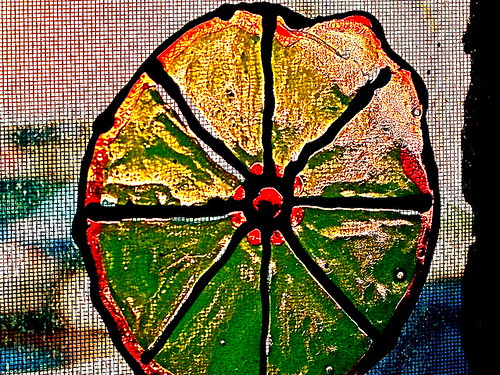I'm so happy to have had the opportunity to collaborate with sixteen other authors, and the executive editor, Eileen Kugler (
@embracediversiT) on a new book, Innovative Voices in Education: What it Takes to Engage Diverse Communities."
Eileen is also the author of,
Debunking the Middle-class Myth: Why Diverse Schools Are Good for All Kids... awarded Book of the Year by the National Association for Multicultural Education and Delta Kappa Gamma International Women Educators Honor Society. The story of how I became involved in the writing of this book is a testimony to how powerful truly collaborative efforts can be, and in particular, how social media can play a remarkable role in bringing the world closer together. As I say in my chapter,
Exposing how we perceive the world, and in turn becoming open to alternate points of view causes the lens we look through to gain a broader and clearer scope. Exercising opportunities to see the world through the eyes of others allows us to challenge our own perceptions; to reflect on our purpose and the manner in which we influence the world. The interpersonal tools we access to negotiate cultural understanding become sharper and more focused when we open ourselves up in this way.
Social media provides us the opportunity to make connections with previously inaccessible people. In turn, our exposure to alternate points of view becomes a very real and immediate opportunity to grow deeper understanding of each other. If it wasn't for my personal learning network, I may have never met Eileen Kugler, and would have missed the opportunity to gain a broader and clearer scope toward diverse schools through my collaboration with the book project.
I met Eileen last fall via the
#ecosys chat on Twitter. Following the Twitter discussion, Eileen sent me a DM saying she was intrigued by the conversation and inviting me to check out her website,
http://www.embracediverseschools.com/. I learned that Eileen is dedicated to the mission of strengthening diverse schools and communities, and replied to her with an invitation to check out KARE Givers. She did just that.
What followed was the beginning of such a wonderful connection with Eileen and her new book project. After perusing my blog, Eileen asked if she could call me at some point for a brief conversation. We set up a time to speak on the phone, and at that point I had no idea where the conversation would lead. Eileen called and we spoke about a number of things related to diversity and culture, and the term
interculturalism came up. As we spoke about this term, I realized that we shared many perspectives toward how intercultural schools enhance the teaching and learning process. We spoke for about an hour, and I felt a growing philosophical synergy with Eileen. As we wound down our conversation, Eileen mentioned her book idea, and then asked me if I would be interested in contributing. I was surprised to say the least, but also honored and thrilled to be asked to write for her. And so the journey began.
As I reflect on the fortunate and inspiring opportunity Eileen has provided me, I am left amazed at how social media made it all possible. Through my PLN, and my use of Twitter, I have made a new friend and colleague that I am so proud to associate and collaborate with. I am looking forward to learning more about the other authors, and can't wait to read the rest of the book. Eileen informed us all today that Innovative Voices in Education... should be out this fall. Watch for it. As she says, it will be "a very valuable book to anyone who cares about engaging students and families of diverse backgrounds."
I agree.
Thank you once again Eileen.













